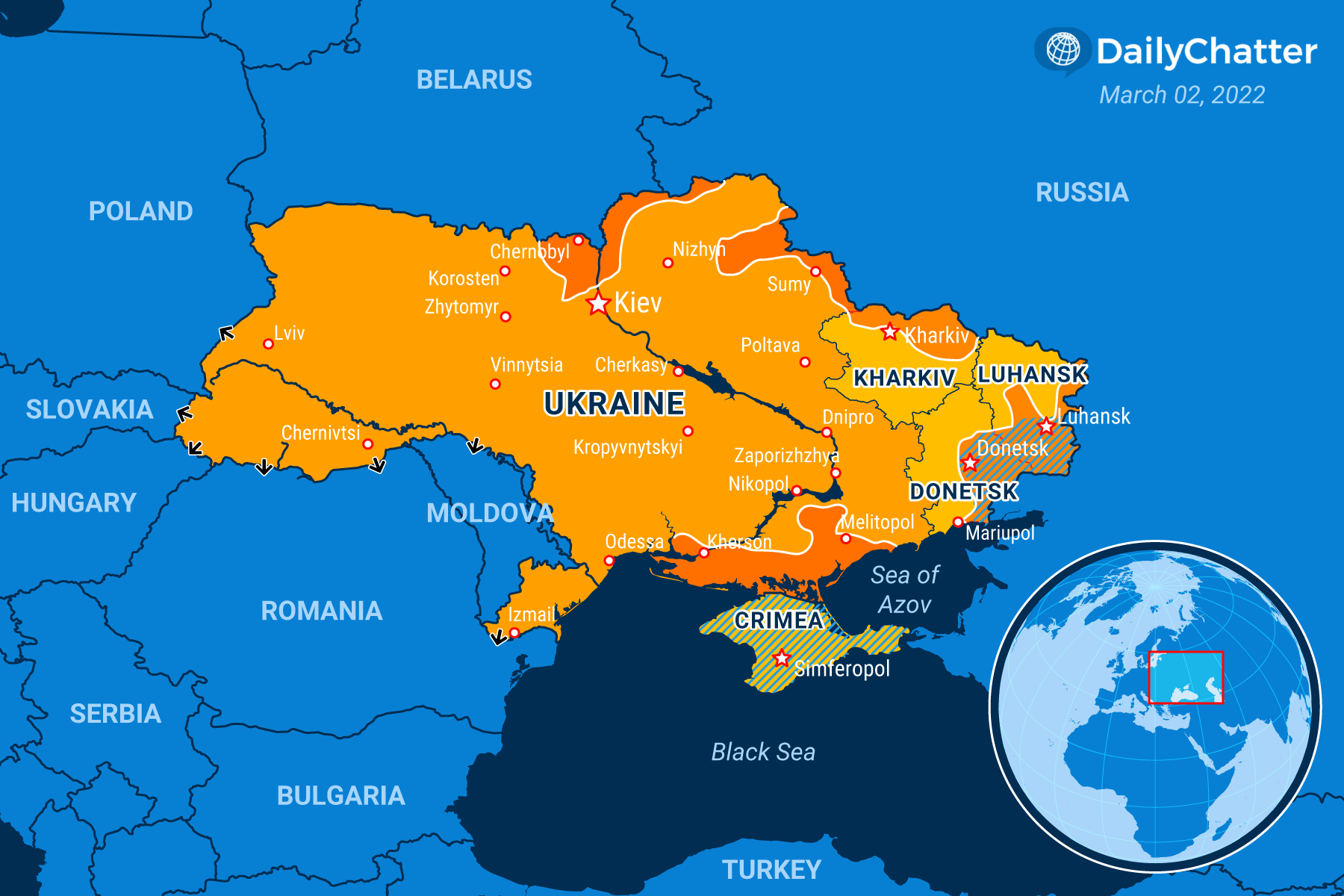Need to Know
March 09, 2022War Games
RussiaUkraine

|
Listen to Today's Edition
|
Ukrainian forces recently attacked Russian vehicles after they received a tip through the encrypted, unmoderated social media app Telegram. As NBC News wrote, Telegram has become an essential tool for Ukrainians in the real world and a battleground in the virtual war between the country and its aggressive adversary, Russia.
Co-founded, ironically, by Pavel and Nikolai Durov, two Russian billionaire brothers living in exile, Telegram has become a “24-hour news lifeline” for civilians, the press and combatants, wrote the Guardian, noting that the Durovs are contemplating a $50 billion public offering of Telegram next year.
The app is only one sign of how cybersecurity and information have become key factors in the Ukraine-Russia conflict, a revolutionary change in how wars are conducted, and a harbinger of the future. Google Maps and other open-source tools contain clues about troop movements that block traffic. Russian civilians’ TikTok videos posted from the roadside contain intelligence about what vehicles and weapons systems are headed to the Ukrainian front. Online websites crowdsource aerial movements of Russian planes.
“Secrecy is harder,” Steven Aftergood, a government secrecy expert at the Federation of American Scientists, told BuzzFeed News. “Clandestine operations are harder. Certain kinds of deception are more difficult and the possibilities for press and public accountability are increased.”
At the same time, the cyberwarfare has evened the playing field between Russia and massively outgunned Ukraine: “Ukrainians and their supporters have used social media to bruise, belittle and humiliate the Russians, seeking to boost citizens’ spirits and sap invaders’ morale during the most Internet-accessible war in history,” the Washington Post wrote, noting how a flood of real-time videos across social media has countered Kremlin propaganda and rallied the world to Ukraine’s side using memes, photos and videos of ordinary Ukrainians thwarting tanks and making Molotov cocktails, all while documenting Russia’s most embarrassing tactical and logistical errors or the destruction and death of its bombardments.
Meanwhile, other sources of information are turning off within Russia. Netflix, TikTok and other Western media companies are shutting down operations in the country in protest against new rules designed to shut down domestic criticism of Russian President Vladimir Putin’s invasion, NDTV reported. Russia also blocked access to Facebook, compelling that company to close down in the country, too.
While these information wars have been ongoing, a parallel cyberwar has also broken out. But surprisingly, it has not been as serious as some would imagine. While Russian and Ukrainian hackers appear to have launched a free-for-all of phishing and poking around systems in each other’s governments, reported the Associated Press, Russia has not launched an all-out cyberattack that has debilitated Ukraine’s electric grid, internet and other vital infrastructure.
Russian officials might be holding back on more aggressive cyberattacks, especially against the US, because they could be afraid of blowback, the Hill speculated. Alternatively, Russian cyberwarfare might have already begun but Putin has not yet unveiled the worst it can do, the National Interest argued. That could be one reason that New York City, for example, recently issued a warning related to potential Russian hackers retaliating for sanctions imposed on their country, as WABC explained.
The US and American businesses, in particular, are especially vulnerable to cyberattacks if Putin decides to open that Pandora’s Box, noted Glenn Gerstell, a senior adviser at the Center for Strategic and International Studies who formerly served as the general counsel of the National Security Agency and Central Security Service, in the New York Times. The war should be a wake-up call for anyone seeking to defend themselves and their country against cyberattacks, added Harvard Business Review.
It’s just another example of how nobody is fully insulated from the horrors unfolding before the world’s eyes.
Not already a subscriber?
If you would like to receive DailyChatter directly to your inbox each morning, subscribe below with a free two-week trial.
Support journalism that’s independent, non-partisan, and fair.
If you are a student or faculty with a valid school email, you can sign up for a FREE student subscription or faculty subscription.
Questions? Write to us at hello@dailychatter.com.

